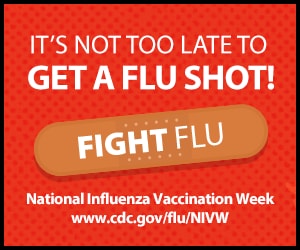Pertussis (Whooping Cough) is now popping up in the community. Below are some helpful facts about Pertussis. The Vermont Department of Health has more information about Pertussis.
What is whooping cough?
Whooping cough is a highly contagious illness caused by bacteria. It mainly
affects the respiratory system (the organs that help you breathe).
Are whooping cough and pertussis the same thing?
Whooping cough is the common name for pertussis.
Who can get whooping cough?
People of all ages can get whooping cough.
How serious is whooping cough?
Whooping cough can be very serious, especially for babies and young kids.
Whooping cough can cause pneumonia, seizures, brain damage, and death.
Less serious illness can occur in older children and in those who have been
vaccinated.
What are the symptoms of whooping cough?
Children and others with whooping cough can have severe coughing spells that
make it hard to eat, drink, breathe, or sleep. Sometimes they cough and then gag
or make a “whooping” sound when breathing in. This sound is how the disease
got its name. Babies younger than 6 months may or may not cough. Instead,
they may have gagging or life-threatening pauses in breathing or struggle to
breathe. Some babies may turn blue because they don’t get enough oxygen and
can’t catch their breath. Older kids and adults may just have a bad cough that
lasts for multiple weeks,
How soon do symptoms appear?
Symptoms usually start 5 to 21 days (average 7 to 10 days) after being around
someone with whooping cough.
How does whooping cough spread?
You can get whooping cough from breathing in pertussis bacteria. This germ
comes out of the mouth and nose when someone who has whooping cough
sneezes or coughs.
How is whooping cough treated?
Whooping cough is generally treated with antibiotics (a medicine to kill germs in
the body). It’s important to start taking the medicine as soon as possible to slow
the spread of the disease. Early treatment may also make the symptoms less
severe.
How is whooping cough prevented?
Getting vaccinated is the best way to stop the spread of whooping cough. Using
good health manners also helps slow the spread of whooping cough—wash
your hands, cover your cough, and stay home when you’re sick.
Are some people at higher risk from whooping cough?
It is most dangerous for babies under the age of six months. Pregnant women
and people who spend a lot of time with babies need to be vaccinated so they
can help to protect these babies. Some people with other health conditions can
also get dangerously sick from whooping cough.
What if I was exposed to someone who has whooping cough?
It depends what kind of exposure. Call your health care provider to ask whether
or not you should take medicine that can prevent you from getting whooping
cough.
What should I do if I have a cough?
If you have symptoms, such as a cough and fever, stay away from babies,
pregnant women and people who are at higher risk for getting whooping cough
until you have been seen by a health care provider.
What should I do if I think someone in my family has whooping cough?
If you think you or one of your family members has whooping cough, call your
health care provider. Try to stay away from other people until the illness is
evaluated. Whooping cough is a possibility if someone has a bad cough,
especially if it lasts longer than two weeks, or if the coughing happens in spells
followed by gagging or difficulty catching the breath.
Thursday, December 22, 2016
Monday, December 5, 2016
Still plenty of time to get a Flu Shot!
What better time to remind you about flu shots than National Influenza Vaccination Week!? If your child hasn't received their vaccine yet, now's a great time to get it done. Any child over 6 months of age should get a flu vaccine. Visit the CDC website for more information about the Flu Vaccine.
Subscribe to:
Posts (Atom)

